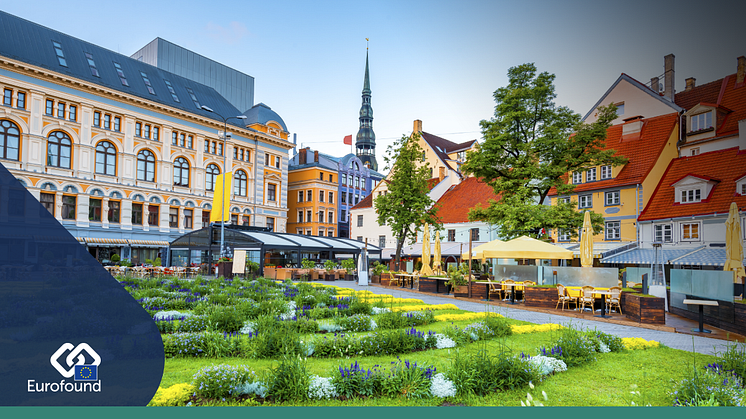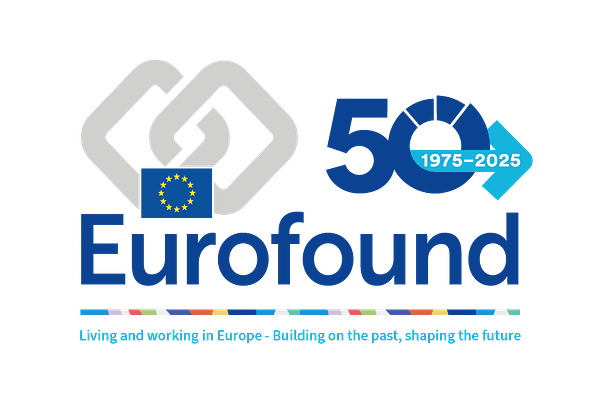
News -
High levels of optimism about future among young people in Latvia
Despite the disproportionate impacts of the COVID-19 pandemic on young people in the EU, Latvia has managed to retain a comparatively high level of optimism among its younger population, with 70% of people aged 18-29 in the country optimistic about their future. This is the second highest optimism score in the EU during spring 2021, only behind Malta, while the EU27’s average is 49% of young people in the EU27.
This data was recently published in Eurofound’s recent research report Impact of COVID-19 on young people in the EU, which explores the effects of the pandemic on young people, particularly in terms of their employment, well-being and trust in institutions, and assesses the various policy measures introduced to alleviate these effects.
Latvia was one of a few countries that introduced specific benefits for recent graduates who could not find employment owing to the pandemic. Furthermore, the Baltic country’s ‘Idle time allowance’ for employees of companies with reduced revenue, was considered particularly beneficial for young people. Although the allowance was available to all employees, a statistically typical recipient was a young woman from Riga working as a waitress who had received a stable but low salary over the past three years, not above 80% of the average salary in the country. Overall, the report notes that while EU governments responded quickly to the pandemic, and a wide range of measures were introduced to support young people, many measures were temporary, aimed at reducing immediate job loss and keeping young people in education, and more should be done to improve the situation of young people so that they are resilient to future shocks.
There is overall positivity for the future of young people in Latvia, Eurofound’s Towards the future of Europe: Social factors shaping optimism and pessimism among citizens finds that 37% of people in Latvia think that the life of children today will be easier, while 29% think it will be more difficult. This optimistic outlook for future generations is the third highest in the EU and only behind Portugal (43% indicate ‘easier’) and Poland (40% indicate ‘easier’).
Despite the positive attitude that seems to prevail in Latvia, the COVID-19 crisis had a significant impact on the working lives and employment of people. For example, Latvia registered a large drop in temporary employment of -63.7% in closed sectors against the EU27 average of -31.4%. On the other hand, within essential sectors, Latvia noted an 16.7% increase in temporary employment, while this type of employment decreased by -6.8% for the EU27 overall. These figures are described in Eurofound’s recent What just happened? COVID-19 lockdowns and change in the labour market report, which explores the employment and working time developments by EU country, sector and occupation through the first year of the COVID-19 crisis. It finds that temporary workers were disproportionately affected by the crisis, accounting for over three-quarters of net job losses in the EU27 during 2020. In terms of sectors and the impact on young people, Eurofound analysis found that in Latvia the sectors most affected by drop in activity were wholesale and retail, followed by accommodation and food services.
Further information
- Report: Impact of COVID-19 on young people in the EU
- Report: Towards the future of Europe: Social factors shaping optimism and pessimism among citizens
- Report: What just happened? COVID-19 lockdowns and change in the labour market
- Data: Living, working and COVID-19
- Data: Quality of life during COVID-19 - Latvia
- Data: Democracy and trust during COVID-19 - Latvia
- Data: Working during COVID-19 - Latvia
- Data: Financial situation and security during COVID-19 - Latvia
- Data: Quality of public services during COVID-19 - Latvia
- Data: Support measures during COVID-19 - Latvia
- Data: Vaccinations during COVID-19 - Latvia
- Database: COVID-19 EU PolicyWatch - Latvia
- Working paper: Latvia: Working life in the COVID-19 pandemic 2020
- Country page: Latvia



